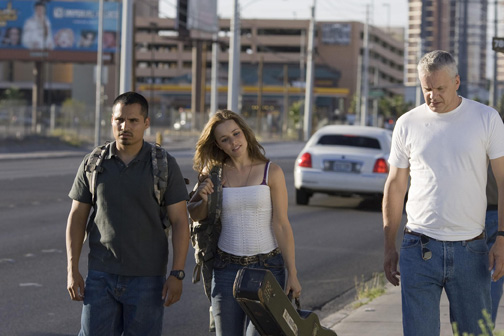
Seeing Neil Burger’s ironically titled third feature at the Toronto Film Festival a few days ago, I gradually come to realize that Burger can be classified as an auteur insofar as his three vastly different features to date can all be related to the same theme: the means by which powerless people assume power. (For a consideration of his first two features — the 2002 Interview with the Assassin and the 2006 The Illusionist — one can read my Chicago Reader review of the later film here.)
Three wounded U.S. soldiers in The Lucky Ones (a film scheduled to open in the U.S. later this month), all traveling “home” from Iraq, played by Michael Peña, Rachel McAdams, and Tim Robbins (see above), have almost nothing in common with one another except for their war service, yet they wind up getting entangled with one another for practical as well as existential reasons, sharing a rented car. What we gradually come to realize is that the reason why they went to Iraq in the first place is subtly tied to the fact that they have nowhere to go now — which is why they wind up forming a temporary and makeshift family with one another. Read more
Written in mid-July 2011 as my 22nd bimonthly column (“El movimiento”) for Cahiers du cinéma España, which might be described as a Spanish extension (rather than the Spanish “edition”) of Cahiers du cinéma. A Spanish translation of this appeared in their September issue, no. 48. — J.R.

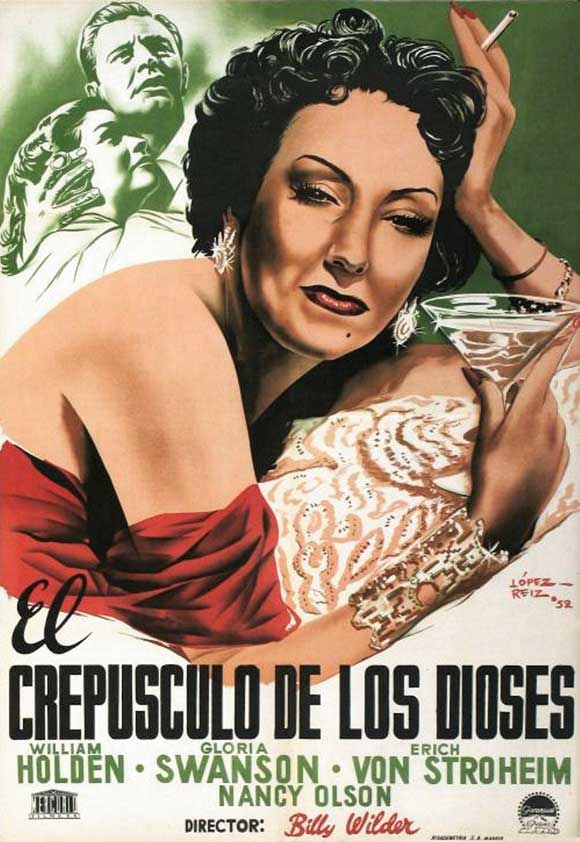
We all have different biases and thresholds when it comes to formulating our separate perceptions of history. Recently reading J. Hoberman’s new book, An Army of Phantoms: American Movies and the Making of the Cold War, which I mainly find an apt ideological reading of Hollywood in the early 1950s, I experienced a rude shock when I read his interpretations of two 1950 features, William Wellman’s The Next Voice You Hear (a very strange suburban family drama about God addressing the world over the radio) and Billy Wilder’s Sunset Boulevard. In both cases these interpretations were predicated on the assumption that both the Hollywood studios of 1950 and their audiences were preoccupied with television: “The Next Voice You Hear is of 1950 but not in it: the Smiths [the film’s archetypal central family] do not own a television set because, like God, TV cannot be shown on the screen.” Read more
From the Chicago Reader (November 24, 2006). — J.R.
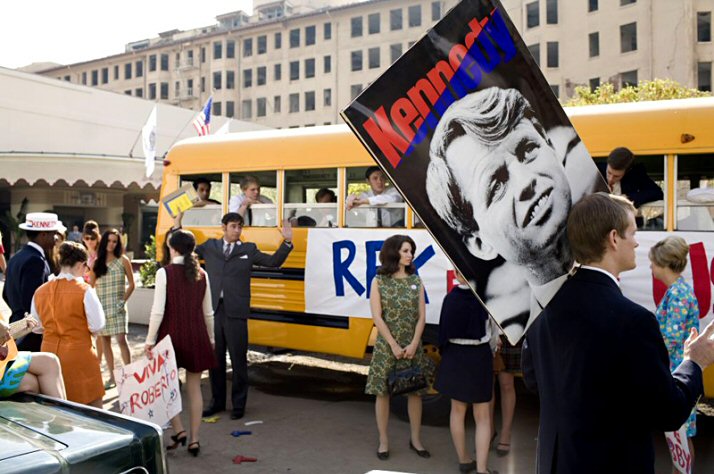
Bobby ***
Directed and written by Emilio Estevez
With Harry Belafonte, Joy Bryant, Nick Cannon, Estevez, Laurence Fishburne, Anthony Hopkins, Helen Hunt, Joshua Jackson, Lindsay Lohan, William H. Macy, Demi Moore, Freddy Rodriguez, Martin Sheen, Christian Slater, Sharon Stone, and Jacob Vargas

I’m automatically suspicious of a movie whose premise is that Bobby Kennedy’s campaign for the presidency may have been the last chance this country had to save itself. For one thing, Kennedy was running in the Democratic primary against Eugene McCarthy, who was much more outspoken about the Vietnam war and much more committed to withdrawing U.S. troops. I’m also wary of an attempt to drape Kennedy’s assassination in nostalgia for the 60s as a way to reflect on the present. But Emilio Estevez’s Bobby, set in LA’s Ambassador Hotel on the day Kennedy was shot, June 5, 1968, is so keenly felt and so deeply imagined I couldn’t help but be moved, even grateful for its bleeding-heart nostalgia — which winds up feeling rather up-to-date. I’m troubled only that Estevez minimizes or omits aspects of Kennedy’s life that don’t fit the idealistic image, such as his early work for Roy Cohn, chief counsel to Joseph McCarthy. Read more
From my Spring 2006 DVD column in Cinema Scope (“Global Discoveries on DVD”). For more material about Delvaux in general and this film in particular, go here. — J.R.
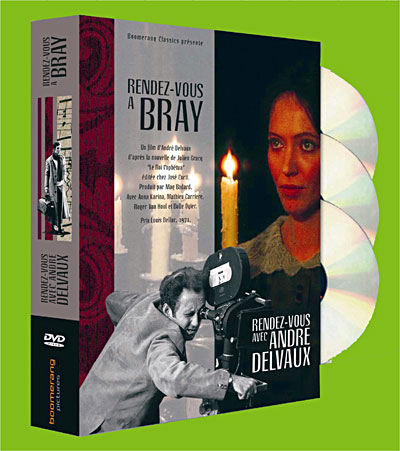
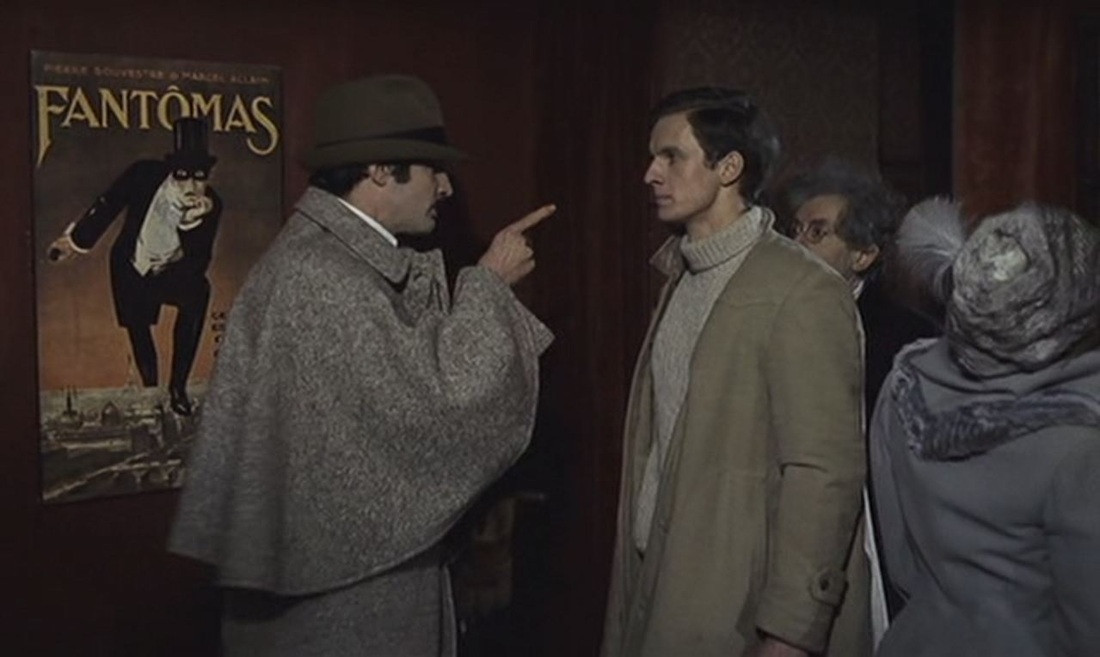
My selection of Rendez-vous à Bray (1971) by André Delvaux (1926-2002) as the best box set of the year in Masters of Cinema’s end-of-the-year poll as well as one of the best in DVD Beaver’s (even though they point out that technically, it was released in late 2004) prompts a bit of explanation. When I reviewed this Belgian film and period mood-piece for the April 1976 Monthly Film Bulletin, my appraisal began as follows: “An appealing foray into ambiguity that uses ellipsis as a kind of erotic invitation, Rendezvous at Bray largely wins one over because its more modest ambitions are so gracefully realized. Derived from a short story by Julien Gracq —- a writer whose rather specialized terrain seems midway between the Gothic novel and Surrealism —- its boundaries are clearly marked by its cozy range of cultural references and its attractive period atmosphere, both of which allow for fireside reveries more nourishing to the imagination than to any prolonged analysis.”
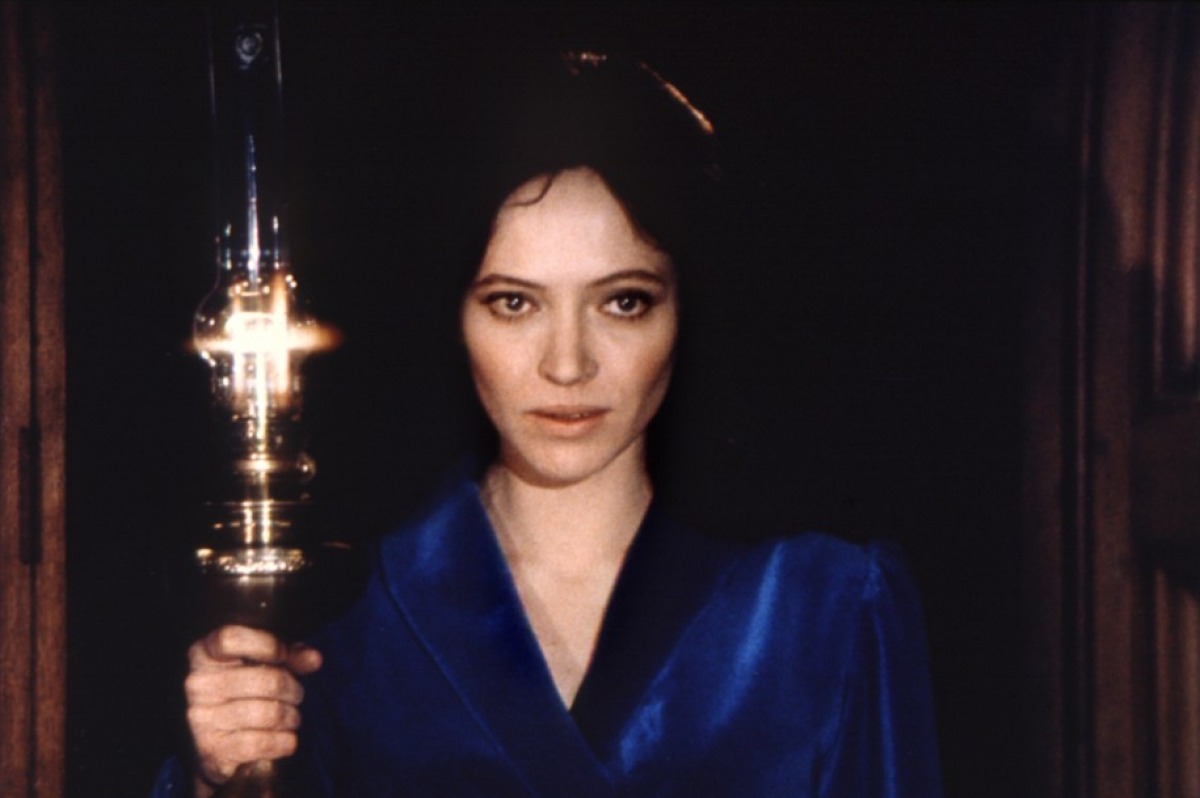
The erotic spells of Anna Karina and Bulle Ogier in the film as well as other virtues must have wound up counting for much more than my demurrals, because when I first heard about a box set devoted to this film last fall, in a post by Fred Patton to the excellent chat group “a film by” (http://movies.groups.yahoo.com/group/a_film_by/message/31667 Read more








